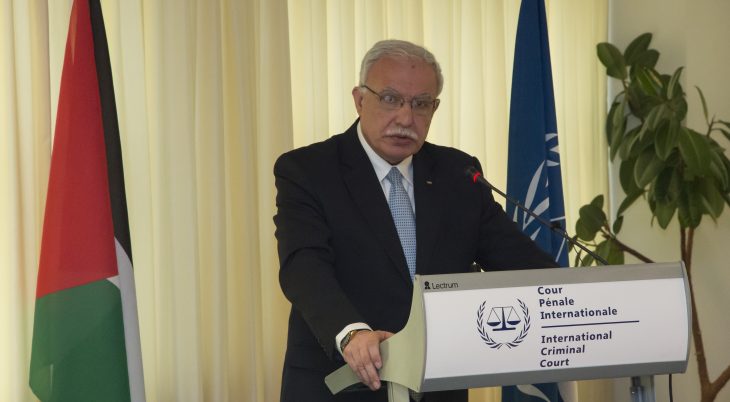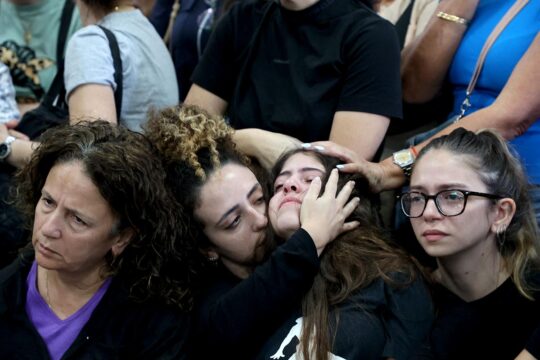The International Criminal Court (ICC), which is regularly criticized for focusing too much on Africa, announced this week that one of its investigation teams is to go to Israel for the first time.The conditions, mandate and even itinerary of the team’s visit have not been disclosed, either by the ICC or the Israeli government, which reflects its sensitivity and the tensions it arouses in the country.
Our correspondent in Israel Aude Marcovitch looked at the extent of goodwill from Israel, which has not signed the Rome Statute (founding document of the ICC) and does not recognize the Court’s jurisdiction to intervene in its territory or the Occupied Territories. “So Israel has decided to adopt a new policy towards the ICC, consisting of exchange and openness,” writes our correspondent. “This is not because it has changed its mind about the Court’s legitimacy on this terrain, which it refutes, but because Israeli diplomats have decided to cooperate to get their arguments better heard in The Hague.”
Palestine, on the other hand, ratified the ICC Statutes and became its 123rd States Party after becoming a UN observer State in 2012. At its request, the ICC opened a preliminary investigation in early 2015 into suspected crimes committed in Palestine, notably in Gaza.
So if this is a first it is limited, and the ICC’s focus on Africa has not yet been diluted.
The Court is also preparing for the trial in December of Dominic Ongwen, a former commander in the Ugandan rebel Lord’s Resistance Army (LRA). The LRA, whose leader bases his fight on an interpretation of the Biblical Ten Commandments, has also continued to operate in the Central African Republic (CAR), Democratic Republic of Congo (DRC) and South Sudan. The LRA is known for its extreme violence and recruitment of child soldiers. Ongwen, a northern Ugandan, was himself kidnapped by the LRA on his way to school before becoming one of its commanders.
In a pre-trial brief issued on September 6, the ICC Prosecutor also puts a focus on sexual violence as a war crime in the Ongwen trial. “The regime of sexual abuse of girls and women in the LRA is one its defining features,” says the pre-trial brief quoted by JusticeInfo. “Women were treated as spoils of war, awarded as prizes without any more say in the matter than if they had been animals or inanimate objects.”
Crimes of sexual violence are becoming a focus of transitional justice. We saw this in the trial of Hissène Habré, the first Head of State to be convicted before the Extraordinary African Chambers for rape, and in the case of Congolese Senator and ex-warlord Jean-Pierre Bemba, whom the ICC convicted for rapes committed in the Central African Republic by members of his MLC former rebel movement.
This was the first time the ICC sanctioned rape and sexual violence as war crimes.
Also of note this week is the sanctions imposed by the United States on two sons of LRA leader Joseph Kony. The LRA and Kony’s sons are said to be involved in ivory trafficking, which helps fund the movement, as well as other crimes.
Kony himself is charged with 33 counts of war crimes and crimes against humanity, including enslavement, intentionally directing an attack against a civilian population, pillaging, inducing rape and forced enlistment of children. He has been under an ICC arrest warrant since 2005, but has still not been caught.
Finally to Colombia, where President Santos gave one of his first interviews since the signing of a peace deal with FARC rebels. "I would like to see anyone who committed horrible crimes, crimes against humanity, behind bars," Santos told AFP. "But I prefer transitional justice (provided for under the agreements) so we don't continue producing more victims. That transaction isn't easy to accept for many people, but it is necessary if we want peace."
This is the eternal dilemma of transitional justice.







